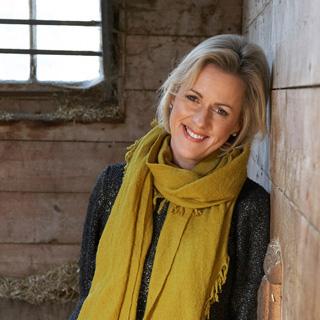Borgen Schmorgen

I still wish we had politicians like this
I want to preface this by saying how much I love Borgen. I love the fact that here we have a television series about women that doesn’t involve anyone getting raped, bullied, threatened, or disrobed repeatedly for the camera. Just have a think about how seldom that happens.
I love the fact that it has lots of strong female characters who are never placed in competition with each other (the closest this time was between Torben’s wife and lover, but even then the plot was clearly about each woman’s relationship with him, and the mess he was in, rather than any physical comparison between them). Look! It says. Women can actually be nice to each other in the workplace! They can tell each other secrets, promote each other, give each other supportive hugs in the rest room! Take THAT, Daily Mail!
I love Sidse Babette Knudsen – her working wardrobe, her integrity, her ability to convey epic swings of emotion with a flicker of her eyes, the slightly daft way she wrinkles her nose when she smiles.
And yet (don’t you hate the ‘and yets’)…
I finished this series with a vague sense of disappointment, and it’s taken me a couple of days to work out why. But here, I think, is the central problem (and the reason why they were right to end the series, even if I shall mourn it): there was no central dilemma. Previous series have asked: what will this person pay to hang on to/gain power? It was a question only made sharper by the fact that she was a woman.
When her husband plainly struggled without her, would Birgitte put her marriage first? When her daughter suffered mental illness, would she do the thing that everyone expects of a woman and be a mother above all else? How do you survive a workplace in which your sex is used against you?
Borgen showed us a political system, but showed us working women we recognised and understood. Every one of us who has had to go to work leaving a sobbing, cold-ridden toddler, or had the hushed argument in the kitchen over whose work commitment was more important, when only one person could go out. It didn’t matter that she was a Staatsminister. She was one of us. She had a normal sex life (even if it was with someone who looked like an underwear model). Her children got grumpy.
We rooted for her, even as we were frustrated by her.
By series three, this was gone. The story arc was simple – can Birgitte fight her way back to power? – but there was no added dimension to it. It cost her nothing. She was independently wealthy. Her relationship with her ex-husband was bizarrely without tension or incident, even when she was about to re-enter the world that had destroyed them. Her relationship with Jeremy was as flat and idealised as a cheap paperback romance. Perhaps this was a feminist move on the writers’ part: hey look – women CAN have it all, political power, rich British architect boyfriend, sexy ex, happy supportive children AND the power bun! But it made for curiously un-engaging viewing.
It was telling to me that the only time the series made me weep for Birgitte was when she was trying to keep her breast cancer treatment secret, isolating herself from the women she worked with, cutting herself off emotionally from the support of her family. But even that only lasted a week.

Katrine - her underwear drawer is messier than yours.
And Katrine. Katrine showed us at the beginning the logistical difficulties of working while being the mother of a young child. I loved the growing tension between her and her mother, who was looking after him, Katrine’s utter inability to manage her own household, her vacillating emotions. We empathised.
But halfway through the series the mother came back, Karina guiltlessly resumed her 18 hour working day, got some hot shimmying with Troels from The Killing, and – er – that was it. There was no real tension with her (fairly recent) ex, Kasper. A very vague, only half-explored dilemma in terms of what she was prepared to tell the media to win power. And as for Kasper – what a waste of a vast, complex character! All that history! I could only conclude that he’d really annoyed a scriptwriter . His biggest plotline went to his ‘there it is, oh my god, and now it’s gone again’ haircut.
And then it ended. Brigitte with her shiny new family, back in power. Katrine having Scandinavian coffee with her new lover’s modern family. I’m glad for them both. I’m glad women in Denmark can have it all. I really am. But when the episode I remember most clearly from the entire series is one about Danish bacon – and probably for all the wrong reasons – I have to conclude, sadly, that it’s probably a good thing Borgen is cooked.
